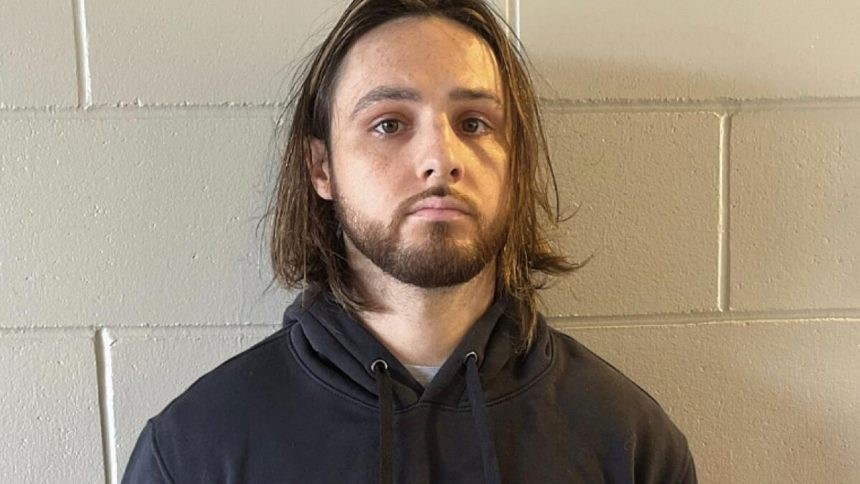In the wake of any major tragedy, the public’s desire to understand the “why” often leads to a deep dive into a suspect’s background, searching for clues in their personal, digital, and political life. The arrest of Jonathan Rinderknecht, the alleged arsonist in the devastating Pacific Palisades fire, has been no exception. As news of his arrest spread, one particular question has sparked intense curiosity and debate online: was Jonathan Rinderknecht a Trump supporter or a Democrat? The digital trail, as uncovered by journalists and investigators, points squarely in one direction, but the real story is a reminder that criminal behavior is complex and rarely fits neatly into a partisan box.
The short answer, based on available public records, is that Jonathan Rinderknecht was a supporter of Joe Biden. According to multiple reports, including data shared by journalist Matthew Foldi, Rinderknecht made a donation to Biden’s presidential campaign on September 11, 2020. The receipt for this contribution was made out to “Biden for President” and listed a Los Angeles address, confirming his financial support for the Democratic candidate.
Furthermore, while he was registered to vote in Florida, he never officially declared allegiance to any political party, registering without a party affiliation. This detail is crucial, as it paints a picture of a person who supported a Democratic candidate but did not formally enroll as a Democrat.
You Might Like: Freida Estelle Parton: Who Is Dolly Parton’s Sister?
The Bigger Picture: Allegations Beyond Politics
NOW – Authorities announce Jonathan Rinderknecht, 29, arrested and charged for allegedly starting Palisades Fire. pic.twitter.com/gDhMbVwLa1
— Disclose.tv (@disclosetv) October 8, 2025
Focusing solely on his political donation, however, risks overshadowing the gravity of the criminal charges and the bizarre digital evidence that forms the core of the case against him. Federal authorities have arrested Rinderknecht for the “malicious destruction of property by means of fire,” alleging that a small blaze he set on New Year’s Day smoldered underground for days before reigniting into the catastrophic Palisades Fire that killed 12 people, obliterated nearly 7,000 homes, and caused an estimated $150 billion in damages.
The evidence detailed in the criminal complaint is strange and disturbing. It includes ChatGPT prompts from months before the fire requesting a “dystopian painting” of a burning forest with people fleeing from it. In another conversation with the AI, he boasted about having “literally burnt” a Bible, saying it felt “amazing” and “so liberated.”
On the night of the alleged arson, he is said to have been listening to a French rap song whose music video features objects being set on fire. After the fire was set, he allegedly recorded himself attempting to call 911 and, during the call, typed a query into ChatGPT asking, “Are you at fault if a fire is lift [sic] because of your cigarettes?” He then reportedly returned to the scene to record videos of firefighters battling the blaze he is accused of starting—behavior that, as an investigator noted in the complaint, is consistent with patterns often seen in arsonists.
At this time, authorities have not suggested that the alleged crimes were politically motivated; the charges focus solely on the act of arson and its devastating consequences.
A Complex Portrait Emerges
NEWS:
Jonathan Rinderknecht is a Joe Biden for President donor https://t.co/iM9pGKCKhZ pic.twitter.com/QkRVr8kh1P
— Matthew Foldi (@MatthewFoldi) October 8, 2025
The conversation around Jonathan Rinderknecht’s political affiliation reveals more about our own societal instincts than it does about his motives. In an era of deep political division, there is a tendency to assign partisan labels to criminals, as if their actions can be explained by the party they supported. The available evidence shows Rinderknecht was a Biden donor, but the rest of the discovered digital footprint—the dystopian AI art, the Bible burning, the fascination with fire-themed music—sketches a far more complicated and troubled portrait.
Also See: What is Plenary Authority? The Stephen Miller CNN Moment
As the legal process unfolds, the focus will rightly remain on the pursuit of justice for the victims of this unimaginable tragedy, a reminder that evil acts, as one law official stated, are ultimately about the individual choices people make, not the political banners they may have once stood under.



